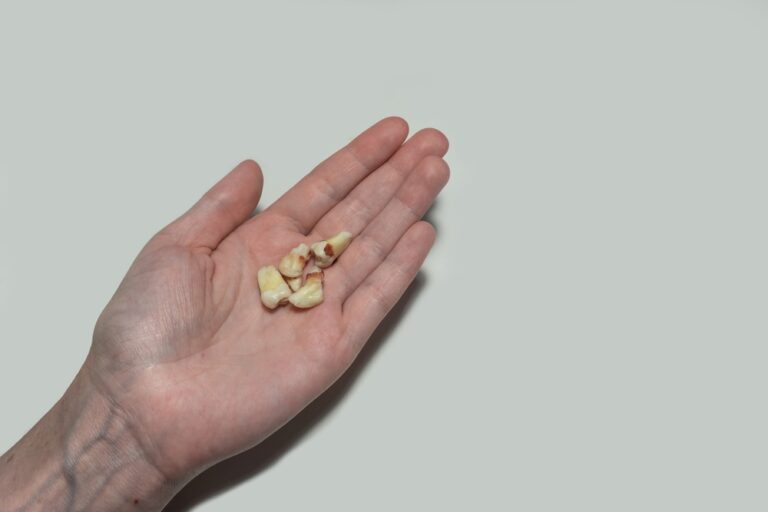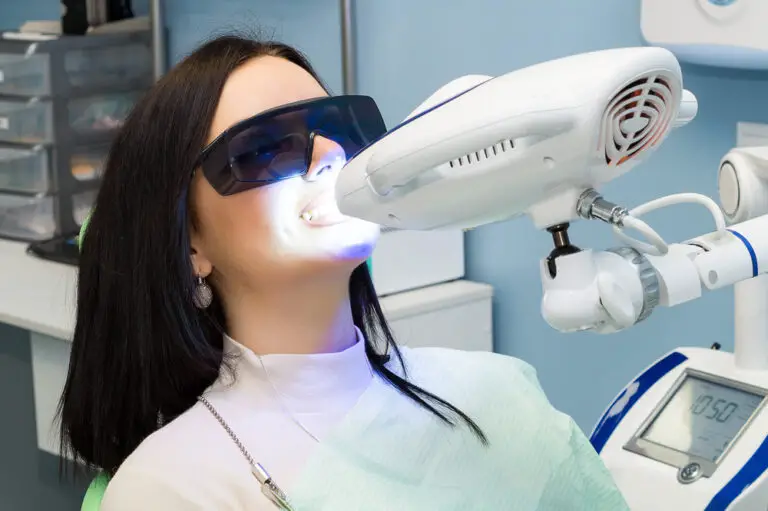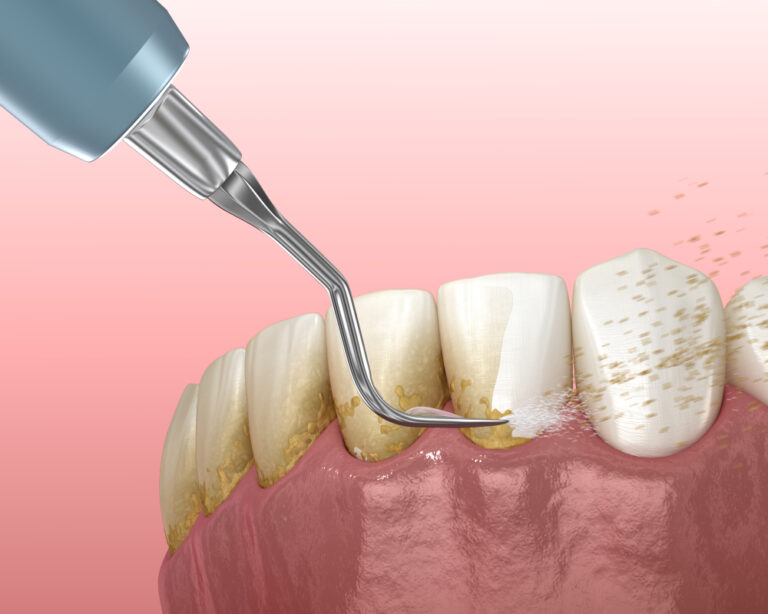If you have lost a tooth because of disease or trauma, replacing it permanently can be a slow process. To cover the gap left by the missing tooth or teeth, your dentist might suggest a dental flipper to you.
If you have not heard of a dental flipper or flipper tooth, and most people have not unless they have needed to use one themselves, you are likely to have a lot of questions about this dental device such as what is a dental flipper. How much does a dental flipper cost and is it worth getting?
Continue reading to have these and many other questions regarding dental flippers answered.
What is a Dental Flipper?
A dental flipper is an RPD, short for an acrylic removable partial denture, which is used as a temporary fix if you are missing a tooth or several teeth. The temporary retainer is made with acrylic and the dentist can attach a prosthetic tooth or teeth to it.
A flipper hides the fact that you are missing teeth. Often they are used by people who are missing front teeth where the gap is more obvious and makes them feel self-conscious. However, flipper teeth can be used at the back of the mouth, too.
There are different types of flippers available depending on your situation. A spoon denture flipper has a spoonlike shape and no clasps. Flexible denture flippers are soft and clear and you can see your gums through them. Two-piece sectional dentures are split to fit different sections of your mouth.
What is the Cost of a Dental Flipper?
A dental flipper is one of the cheapest ways to replace missing teeth. The cost depends on how many prosthetic teeth you need, the location of the missing tooth or teeth, and if you need any other dental procedures. The costs will also differ between states.
However, on average, a single-tooth flipper will cost around $150 and the cost will go up to around $600 for a flipper with multiple teeth. This is significantly cheaper than other types of tooth replacements. For example, a single dental implant can cost from $1,385 to $3,500, and a dental bridge from $1,500 to $5,000.
Why You Might Need a Flipper?
If you have a tooth missing and your dentist has suggested a dental flipper, you might be wondering why you would need a flipper. Why cannot you have a more permanent tooth replacement put in place straight away?
It may not be possible to fill the gap straight away, for example, if your gums need to heal first after a tooth extraction, and this may take a while. It also takes a lot longer to get a permanent implant made than a dental flipper. A flipper will restore your smile in the meantime while preserving your natural teeth and the gap between them.
Can You Use a Dental Flipper Permanently?
Because dental flippers are so much cheaper than more permanent fixtures, many people chose to wear them for a lot longer than they are designed for. While it is possible to use the same dental flipper for a few years if it is taken good care of, it will not last as long as a dental implant and may cause other dental issues.
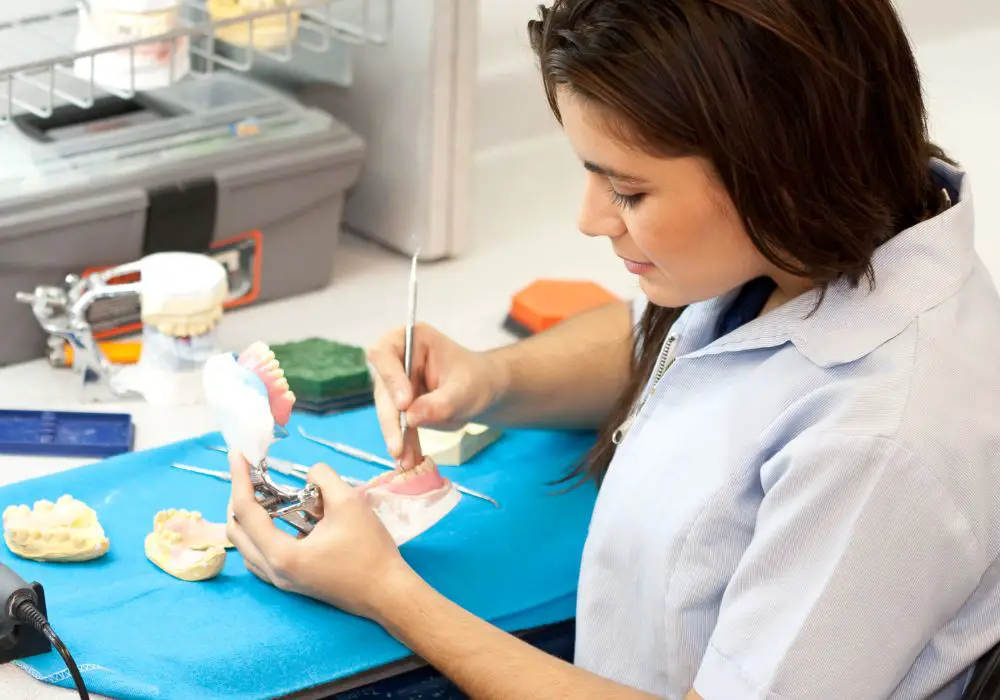
Can You Wear a Flipper 24 Hours a Day?
Wearing a dental flipper continuously is not recommended. Dentists advise removing it for at least eight hours every 24 hours. If you keep it in place all the time, it can disrupt the flow of saliva and encourage bacteria. The flipper will also exert constant pressure on the gum tissue, which can cause bone deterioration and gum recession.
Dental Flipper Advantages
While the first advantage many people think of is the cost, there are additional advantages to flipper teeth. They are easier to fabricate than other tooth replacement options. Flippers also look very natural and will make your smile complete again.
Dental flippers are easy to insert into your mouth and just as easy to remove. They are also easy to keep clean. Wearing a flipper will help stabilize your teeth and mouth when you have lost a tooth. In addition, having a flipper fitted is less invasive than other replacement options.
Dental Flipper Disadvantages
While there are many advantages to dental flippers, particularly the cheaper cost, there are also disadvantages. You need to consider them carefully, especially if you are planning to use a dental flipper for a long time instead of paying for a more permanent replacement.
One of the main drawbacks of dental flippers is the increased risk of oral health issues, including gum disease and tooth decay. Not removing your flipper at night will further increase the risk of oral health problems. Sometimes larger flippers can trigger your gag reflex.
Dental flippers have lower durability than permanent fixes for missing teeth. Neither are they strong enough for heavy chewing. Some people may also find dental flippers uncomfortable and they may become looser and not fit as well over time. There is also a risk of potential allergies.
Taking Care of a Dental Flipper
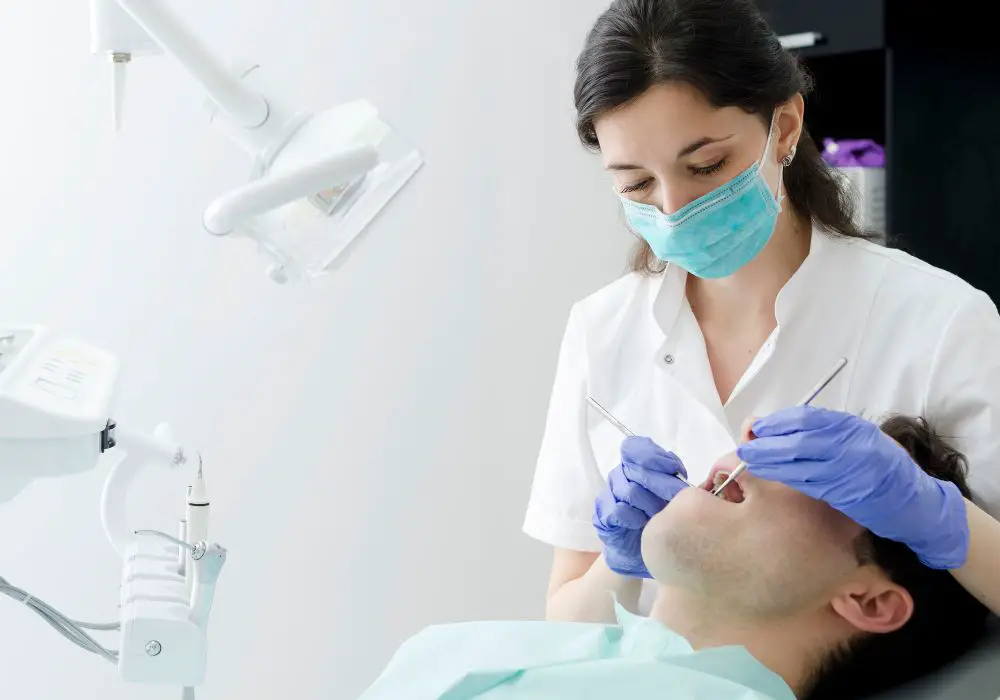
Looking after your dental flipper can reduce the risk of oral health issues. Remove it every night and clean it with a soft-bristled toothbrush, warm water, and mild soap or dishwashing liquid. You can also use denture cleaners. Do not use toothpaste on the flipper as it can damage the soft material.
Cleaning it every day is important as It will prevent denture biofilm and plaque from developing. Brush your teeth twice a day and floss once a day to remove food particles and other debris. Visit your dentist every six months to catch any issues and make periodic adjustments.
As well as cleaning your teeth and the flipper, you can help it last longer by not eating chewy or hard foods with it. Hard foods can break the flipper as it is not made from as durable a material as permanent implants. It is also advisable to avoid foods and beverages such as beets, red wine, and cranberry juice that can stain the flipper.
Eating and Speaking with a Flipper
When you first get a dental flipper, it may feel weird eating or speaking with it in place. It may feel like it gets in the way of your tongue. Chewing slowly and avoiding hard foods can help with eating with a flipper. Some people find it useful to practice speaking in front of a mirror until they get used to the flipper.
Other Treatment Options
There are other options you can speak to your dentist about if you are not sure the flipper denture is for you. You can get a snap-on smile instead. This partial denture does not cover your palate like a flipper does. It only covers the teeth and gums.
The next option is a fixed bridge, which is also called a fixed partial denture. It is similar to a flipper but instead of being removable, it is glued permanently onto the teeth. This means it will last longer than a flipper denture.
A more permanent solution is a dental implant. You will need dental surgery if you are getting an implant so the process is more invasive. However, in the long term, it is often the best solution. An implant is an artificial root for your tooth that a dental crown can be attached to with cement.
Is It Worth Getting a Dental Flipper?
Whether getting a dental flipper is worth it for you, depends on factors such as the cost of the flipper, how long you would use it, and whether you are happy to go without a tooth or a few teeth while you wait for a permanent replacement.
If your dentist can put in a permanent replacement for your missing tooth quickly, then a flipper tooth might not be worth the extra expense as long as you are ok with having a gap in your teeth while you wait. Also, unless you need a front tooth flipper, the device will not make an aesthetic difference. Weigh up the cost against the other factors.
To make your decision, speak to your dentist to find out the exact cost because the range is quite wide depending on whether you need to replace a single tooth or several, the material you choose, and if you need other treatments with it among other factors. Once you know the exact cost, it will be easier to make a decision.
Conclusion
A dental flipper is a temporary solution for missing teeth. However, some people end up wearing them for several years because they are cheaper than other options. The cost of a flipper depends on various factors such as the number of teeth that need to be replaced and the position of the tooth.
This temporary prosthetic has several benefits but also disadvantages, including gingivitis and tooth decay. By looking after your flipper properly you can prevent oral health problems and extend its shelf life. Dental flippers are not the only option, so ensure you speak to your dentist about the different alternatives available to you.

